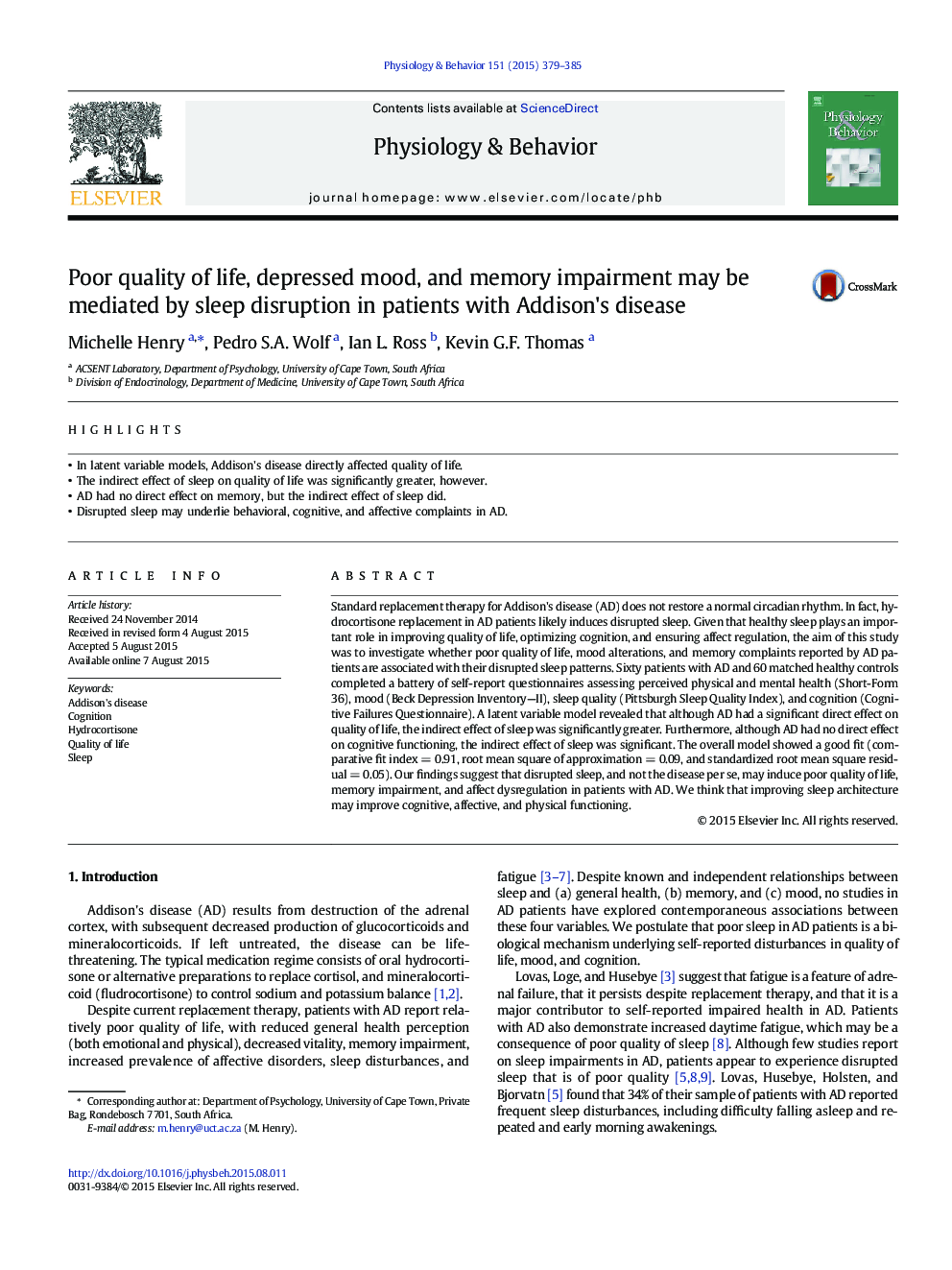| Article ID | Journal | Published Year | Pages | File Type |
|---|---|---|---|---|
| 5923308 | Physiology & Behavior | 2015 | 7 Pages |
â¢In latent variable models, Addison's disease directly affected quality of life.â¢The indirect effect of sleep on quality of life was significantly greater, however.â¢AD had no direct effect on memory, but the indirect effect of sleep did.â¢Disrupted sleep may underlie behavioral, cognitive, and affective complaints in AD.
Standard replacement therapy for Addison's disease (AD) does not restore a normal circadian rhythm. In fact, hydrocortisone replacement in AD patients likely induces disrupted sleep. Given that healthy sleep plays an important role in improving quality of life, optimizing cognition, and ensuring affect regulation, the aim of this study was to investigate whether poor quality of life, mood alterations, and memory complaints reported by AD patients are associated with their disrupted sleep patterns. Sixty patients with AD and 60 matched healthy controls completed a battery of self-report questionnaires assessing perceived physical and mental health (Short-Form 36), mood (Beck Depression Inventory-II), sleep quality (Pittsburgh Sleep Quality Index), and cognition (Cognitive Failures Questionnaire). A latent variable model revealed that although AD had a significant direct effect on quality of life, the indirect effect of sleep was significantly greater. Furthermore, although AD had no direct effect on cognitive functioning, the indirect effect of sleep was significant. The overall model showed a good fit (comparative fit index = 0.91, root mean square of approximation = 0.09, and standardized root mean square residual = 0.05). Our findings suggest that disrupted sleep, and not the disease per se, may induce poor quality of life, memory impairment, and affect dysregulation in patients with AD. We think that improving sleep architecture may improve cognitive, affective, and physical functioning.
